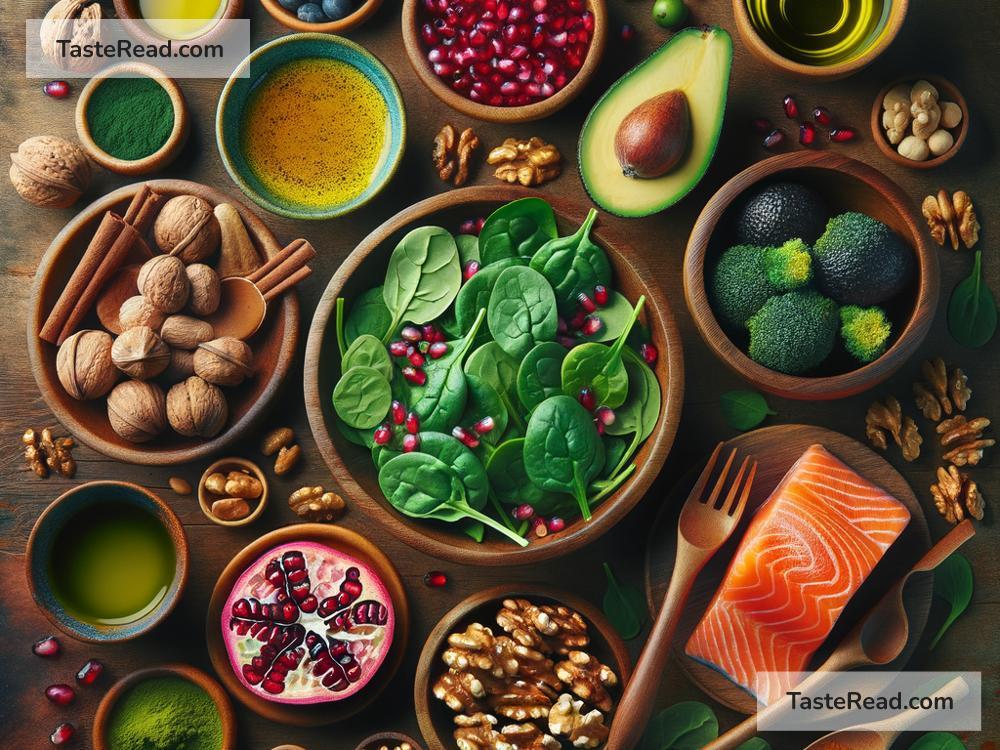Foods for Enhancing Cellular Repair: Revitalize Your Body Naturally
Cellular repair is one of the most critical processes in your body. Every second, billions of cells in your body are working tirelessly to repair themselves, replace old or damaged cells, and keep you healthy and vibrant. Just like a mechanic needs the right tools to fix a car, your body needs the right nutrients to support cellular repair. The good news is that the foods you eat play a big role in giving your cells what they need to thrive.
In this article, we’ll explore some of the best foods you can eat to help your body rebuild and repair itself at the cellular level.
Why Does Cellular Repair Matter?
Before we dive into the foods, let’s understand why cellular repair is so important. When your cells are damaged—whether from injury, illness, aging, or everyday wear and tear—it can impact the overall health of your tissues, organs, and systems. Poor cellular repair can lead to signs of aging, weakened immunity, slower recovery, and even chronic diseases.
Supporting your cells with nutrients that enhance repair can help your body stay strong, energized, and healthy over the long term.
Top Foods for Cellular Repair
Here are some nutrient-packed foods that support cellular repair and regeneration. These foods are rich in antioxidants, vitamins, minerals, and other key compounds that give your body the fuel it needs.
1. Blueberries: Loaded With Antioxidants
Blueberries are tiny, but they’re a powerhouse of nutrients, especially antioxidants like anthocyanins. Antioxidants fight oxidative stress—a condition where harmful molecules called free radicals damage your cells. By reducing oxidative stress, blueberries protect your cells and support their repair.
Try adding a handful of blueberries to your breakfast, smoothies, or snacks. Your cells will thank you!
2. Salmon: Rich in Omega-3 Fatty Acids
Salmon is an excellent source of omega-3 fatty acids, which are healthy fats your body needs for repairing and maintaining cells. Omega-3s help reduce inflammation, which is vital for promoting efficient cellular repair and protecting against damage.
If you’re not a fan of salmon, other fatty fish like mackerel, sardines, and tuna can provide similar benefits.
3. Spinach: Packed With Vitamins and Minerals
Spinach is a nutritional powerhouse, full of vitamins A, C, and E, as well as magnesium and iron. Vitamins A and C are particularly important for cell growth and repair, while magnesium supports various cellular functions.
Whether in salads, soups, or smoothies, spinach is an easy way to nourish your cells.
4. Nuts and Seeds: Full of Healthy Fats and Minerals
Walnuts, almonds, chia seeds, and flaxseeds are rich in healthy fats, antioxidants, and minerals that promote cellular health. Vitamin E found in nuts is a potent antioxidant that helps protect cells from damage. Additionally, walnuts are high in omega-3 fatty acids, which further boost repair processes.
Grab a handful of nuts or sprinkle seeds on your meals for a satisfying, cell-friendly snack.
5. Eggs: Building Blocks of Proteins
Eggs are one of the best sources of high-quality protein, and protein is essential for building and repairing tissues. Eggs also contain nutrients like vitamin D and choline, which support cellular structures and regeneration.
Enjoy boiled, scrambled, or poached eggs as part of a balanced diet to fuel cellular repair.
6. Avocados: A Rich Source of Healthy Fats
Avocados are creamy and delicious, but they’re also packed with monounsaturated fats that help protect your cells and improve their structure. Avocados also contain vitamin E, an antioxidant that combats free radical damage.
Spread avocado on toast, add it to your salad, or make guacamole—the possibilities are endless!
7. Sweet Potatoes: A Boost of Beta-Carotene
Sweet potatoes are rich in beta-carotene, which your body converts into vitamin A. Vitamin A plays a key role in tissue growth and cellular repair. Plus, sweet potatoes provide fiber and other essential nutrients to keep your body functioning smoothly.
Bake them, roast them, or mash them—sweet potatoes are always delicious and nutritious.
8. Green Tea: A Cell-Protecting Beverage
Green tea contains catechins, powerful antioxidants known for their ability to protect cells and support repair. Drinking green tea regularly can help reduce inflammation and support your body’s healing processes.
Try swapping your coffee or sugary drinks for a soothing cup of green tea.
9. Garlic: Nature’s Healing Wonder
Garlic is well-known for its health benefits, including its ability to boost the immune system and support cellular health. It contains compounds like allicin, which fights inflammation and provides antioxidant effects.
Add garlic to your cooking to take advantage of its cell-repair benefits while enhancing flavor.
10. Dark Chocolate: A Sweet Source of Antioxidants
Believe it or not, dark chocolate (when consumed in moderation) can be good for your cells. It contains flavonoids—antioxidants that help protect and repair cells. Just make sure to choose chocolate with at least 70% cocoa to maximize the health benefits.
Conclusion: Fuel Your Body for Cellular Repair
The foods you eat have a direct impact on your body’s ability to heal and regenerate at the cellular level. By choosing nutrient-rich options like blueberries, salmon, spinach, nuts, and green tea, you’re fueling your cells with everything they need to perform their best. Incorporating these foods into your diet not only supports cellular repair but also improves your overall health, energy, and well-being.
Remember, small changes can make a big difference over time. Start adding these cell-friendly foods to your meals today and give your body the tools it needs to revitalize and repair itself naturally. Your cells are counting on you!


